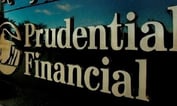If you’re in the mood for a good read about the financial problems of aging baby boomers, look no further than a new report from the Bankers Life Center for Secure Retirement.
The study, “Paying for the New Retirement: Responsibilities and Challenges for Middle-Income Boomers,” portrays a worrisome picture: Many individuals in this demographic are woefully unprepared for the nest eggs they’ll need to carry them through their golden years.
Who are these folks?
The online survey polled 1,001 individuals in middle-class households with incomes ranging between $25,000 and $100,000 and holding $1 million or less in investable assets. Boomers among them (ages 52 to 70) accounted for the overwhelming majority (90%) of the total. Most (60%) also were pre-retirees.
What did the survey find? In line with previous studies of boomers, most are (not surprisingly) ill-prepared for retirement. They’re also clueless as to how much they’ll need to save.
Seven in 10 (69%) of the boomers surveyed said they “do not have or do not know” whether they’ll have the funds to make ends meet in retirement to age 85 (the average life expectancy of a retiring 65-year-old boomer). The figure rises to an eye-popping 83% of respondents when asked if they can comfortably finance retirement needs to age 95.
“The survey is consistent with our findings in prior years, says Bankers Life President Scott Goldberg. “Many of them are not putting a plan in place to make them more financially secure. And most are not working with a financial advisor.”
The lack of retirement preparedness reflects a more troubling issue: the fact that large numbers of working-age boomers are struggling financially — and often putting their nest egg on the back-burner to meet expenses today.
Consider this: Six in 10 of the pre-retirees polled by Bankers Life are spending “as much or more” than they earn in income. And 4 in 10 have had to revise budget priorities to compensate for an inadequate nest egg.
The financial strain that middle-market boomers are experiencing is mirrored in their debt obligations: 81% have some. Plastic is the most common type: More than half (53%) of survey respondents (retired or not) hold credit card debt.
Close behind is mortgage debt (44% of all respondents; 39% among retirees). Nearly a quarter of those polled (23%) say they’ll be paying off principal and interest on a home for another 20 years (i.e., well into retirement).

The survey found that 8 out of 10 baby boomers are not adequately prepared for the financial demands of retirement. (Photo: iStock)
Many are shackled by other debts after receiving the proverbial gold watch. The survey notes that middle-market boomers also are paying down:
-
-
auto debt (33%)
-
outstanding medical expenses (17%)
-
student loans (9%) and;
-
personal debt to another family member (7%).
-
“Many of these boomers are in a tight squeeze,” says Goldberg. “They’re spending a portion of income servicing debts. And as they enter retirement, they’re forced to reduce expenses, putting them in a less secure position than they ever imagined.”
The mountain of debt is, in no small measure, keeping boomers from directing savings dollars into employer-sponsored retirement accounts. Significant numbers are not taking advantage of 401(k)s, 403(b) and other employer-sponsored defined contribution plans. Or they’re failing to stash away enough to make a difference.
To be sure, the Bankers Life survey notes that 6 in 10 (61%) middle-income boomers do contribute to a retirement or savings account, but they’ve done little or no planning. The vast majority (91%) of respondents don’t have a written retirement plan.
Additionally, three-quarters (75%) of middle-income boomers have not developed a monthly retirement income number goal. A still larger proportion (79%) doesn’t know the amount of pre-retirement income they’d feel comfortable living on when they leave the workforce.
Related: Americans’ views on financial security vary by generation
The report also finds that:
-
-
Nearly one-third (32%) of middle-income boomers who have taken at least one retirement planning step did not start planning until after age 50. Six in 10 (58%) started planning after age 40.
-
Boomers who started retirement planning before age 30 are more likely to have higher levels of investable assets than those who started after age 50.
-
More than 1 in 10 (13%) of boomers who started retirement planning before age 30 reported investable assets between $500,000 and $1 million. This compares to just one in 20 (6%) of those who started planning after age 50.
-
Less than 4 in 10 (37%) of middle-income boomers who started retirement planning before age 30 reported investable assets less than $100,000. This compares to nearly two-thirds (63%) of those who started planning after age 50.
-
“There’s a mindset among boomers that they need to provide adequately for their kids while pushing off retirement savings until the last 10 to 15 years of their working lives,” said Goldberg. “But that’s not how compound interest works.








 July 22, 2016 at 08:22 AM
July 22, 2016 at 08:22 AM















